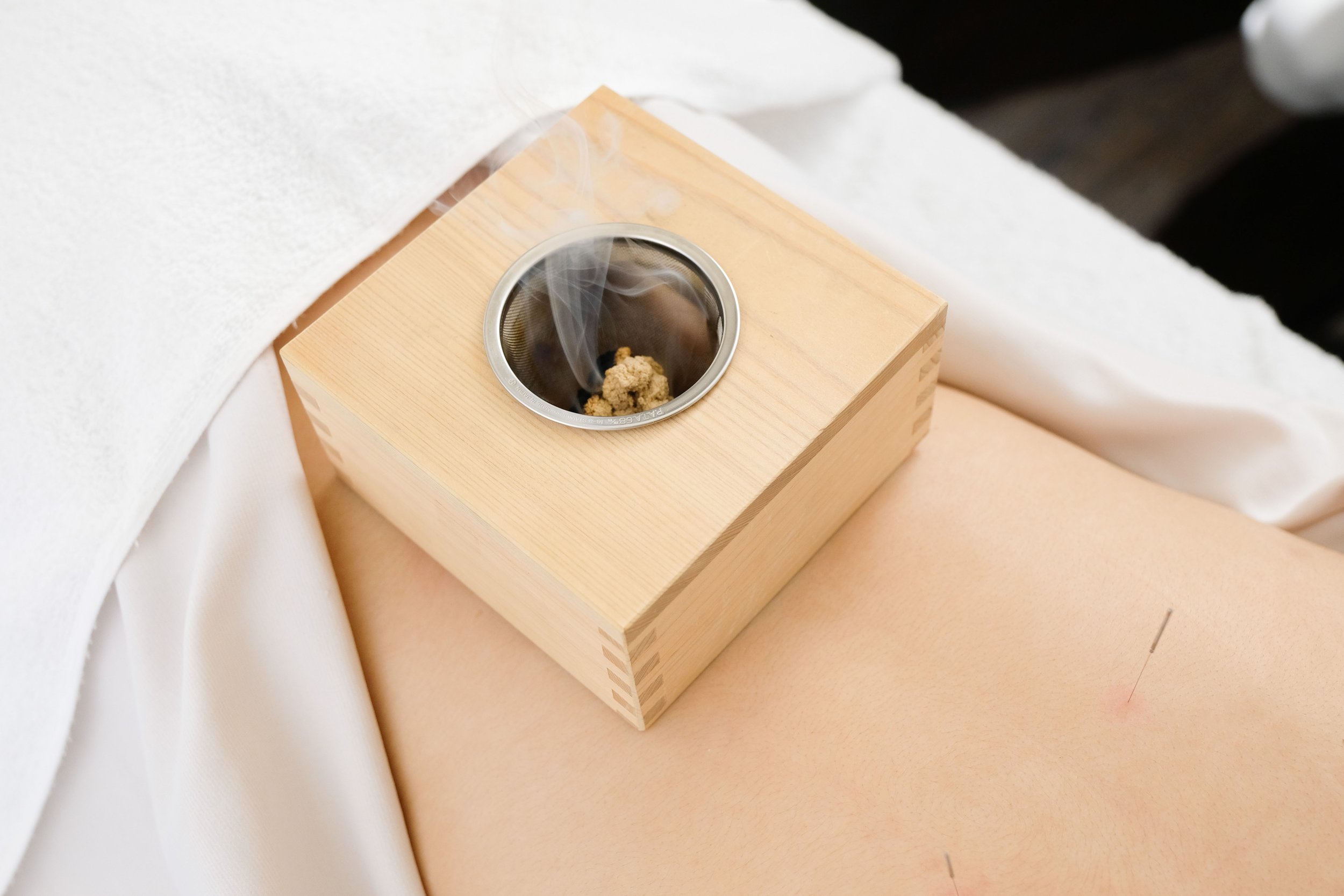Tired, Cold, and Unmotivated? Supporting Yang Energy as the Seasons Shift
Do you feel more tired, sluggish, or unmotivated lately, especially first thing in the morning? You're not alone. As we move deeper into autumn, your body’s energy starts to turn inward. In Traditional Chinese Medicine (TCM), this time of year is about conserving yang qi, which is the warming, activating counterpart to yin, which is cooling and nourishing. Yang qi fuels everything from fertility and digestion to mood and metabolism.
During autumn and winter, yang energy naturally recedes. And if your system is already depleted (from overwork, stress, long-term illness, postpartum, or chronic cold patterns), that decline can feel more dramatic.
Symptoms of Yang Deficiency
When yang is deficient, you may start to feel particularly cold, tired, foggy-headed, or unmotivated. Other key symptoms that could indicate a yang deficiency are frequent bloating, loose stools, or fatigue after eating. From a reproductive health perspective, you might notice spotting or a shortened luteal phase.
When trying to conceive, a yang deficiency can show up in several ways. Frequently, it manifests as a “cold uterus” (in TCM terminology), which creates a suboptimal environment for implantation. Physiologically, it can correspond to low progesterone levels or a luteal phase defect, leading to challenges such as recurrent miscarriages or unsuccessful IVF implantation. Women with yang deficiency may also experience poor follicle development, ovulatory fatigue, reduced libido, and consistently low basal body temperatures, even after ovulation. A formal diagnosis isn’t always necessary; your body’s subtle cues often signal when something is out of balance.
How to Rebuild Yang in Fall & Winter
1. Try Moxibustion Therapy
One of the best things you can do for yang deficiency is moxibustion therapy. This Traditional Chinese Medicine technique uses gentle heat from burning mugwort (moxa) over specific meridians; this modality is especially powerful when used on the lower abdomen and back. Moxibustion helps tonify Kidney yang, increase warmth and circulation to the uterus and digestive organs, and support ovarian function. You can access this therapy through in-clinic acupuncture sessions or use it at home with professional guidance (we have several informational handouts we provide patients to instruct you how to perform moxibustion at home). In addition to warming the body and reproductive systems, moxibustion helps regulate menstruation, alleviate lower back pain, and reduce stress, offering a holistic approach for fertility and hormonal balance.
2. Eat Warming, Cooked Foods
Focusing your fall and winter diet on warming, cooked foods can also rebuild yang. Soups, stews, and roasted vegetables are more nourishing than cold salads or smoothies, especially when enhanced with warming spices like ginger, cinnamon, cardamom, nutmeg, and black pepper. Warm teas such as red date, ginger, rooibos, or chai support internal warmth, while cold drinks (like iced coffee), raw foods (like sushi), and chilled breakfasts (like acai bowls) are best avoided to prevent yang depletion.
3. Support Your Adrenals
Supporting the adrenals, known in TCM as the Kidneys, is vital for yang restoration. Getting adequate sleep, limiting evening stimulation, and including restorative practices like meditation, gentle breathwork, yin yoga, and regular acupuncture help rebuild core energy reserves in the body, promoting a healthy yin-yang balance.
4. Nourish Yang Through Herbs
Herbal therapy is another gentle way to nourish yang during colder seasons. Yang-tonifying formulas such as You Gui Wan (Restore the Right Kidney Pill), Jin Gui Shen Qi Wan (Kidney Qi Pills from the Golden Cabinet), or custom blends tailored to individual constitutions are often recommended. These herbs help rebuild foundational energy, support hormone production, and enhance the vitality needed for reproductive health and overall wellness.
Please note: It’s important to take herbal formulas only when prescribed by a licensed acupuncturist who can safely customize them to your individual needs and health history.
Acupuncture for Yang Support
Acupuncture offers strong support for those experiencing yang deficiency, especially in the cooler seasons. Treatments are designed to stimulate warmth and circulation in the lower body, which is crucial for healthy ovulation and progesterone production during the luteal phase. Additionally, acupuncture can enhance thyroid function, counteracting fatigue and persistent feelings of coldness, while also addressing emotional stagnation that often accompanies low yang. Many people find a renewed sense of motivation and drive as acupuncture brings their system back into balance.
Feeling Cold and Drained? You Might Need a Yang Recharge.
If you often feel cold, fatigued, or notice post-ovulation tiredness with low basal body temperatures, these can be signs that your yang energy needs replenishing. At Seed Acupuncture, you’ll find support in recognizing these subtle patterns and personalized, gentle strategies for renewing yang energy in step with the season. Having a hormonal imbalance doesn’t mean anything is fundamentally wrong - it’s simply a sign your yang qi would benefit from focused care.
With a specialty in reproductive system-centered wellness, Seed Acupuncture helps nurture warmth, healthy circulation, and inner vitality. Now is the perfect moment to invest in your well-being. Book your acupuncture treatment today to restore your yang for better energy, regular cycles, and stronger fertility.


